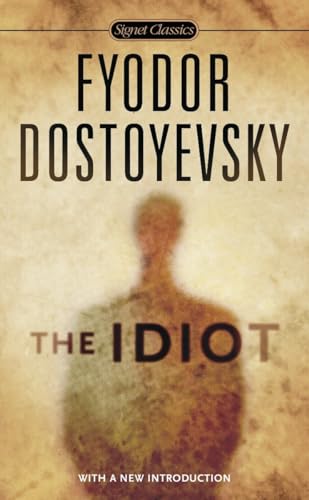The Idiot (Signet Classics)
Fyodor Dostoyevsky
BOOK REVIEW

In the intricate maze of human emotion, few works echo as profoundly as Fyodor Dostoyevsky's The Idiot. A novel that delves into the very essence of goodness, it poses a troubling question: what does it mean to be pure in a world steeped in corruption? Dostoyevsky introduces us to Prince Myshkin, a character so radiant with innocence and compassion that he's inevitably doomed in the murky waters of a society that is anything but kind.
Set against the backdrop of 19th century Russia, this masterpiece resonates with themes that are alarmingly relevant today. The political tensions, coupled with societal upheavals of the time, are mirrored in the tangled relationships of the characters. Does Myshkin represent a Christ-like figure, or is he merely naive? This ambiguity invites readers into a whirlwind of thoughts, forcing you to confront your moral compass time and again. 📜
Dostoyevsky penned this monumental text after spending years grappling with his personal demons, including brushes with poverty, exile, and the suffocating grip of existential dread. It was this deep understanding of agony and ecstasy that allowed him to weave complex characters who are as relatable as they are tragic. When you walk in the shoes of Myshkin, you feel his heartache, his unwavering hope that love and kindness can conquer all. Yet, the devastating reality unfolds like a flower poisoned by deceit.
Critics have raised eyebrows at the Prince's almost otherworldly naivety, citing his inability to navigate the malicious whims of those surrounding him. "Is Myshkin really a fool, or is he the wisest of us all?" they ponder, and rightfully so. The very fabric of The Idiot threads through the reader's psyche, inciting debates in coffee shops and book clubs, igniting passionate discussions about morality and the human condition. Some readers passionately embrace Myshkin's ideals, while others lament his tragic fate as a reflection of their own disappointments. Is it possible that in a world so full of greed, innocence is, in fact, a curse?
As you dive deeper into the pages, Dostoyevsky crafts a narrative filled with breathtaking contrasts-love meets betrayal, trust confronts treachery, and purity grapples with wickedness. Questions arise with every chapter: Is it better to be wise and cynical or foolish and good? Why do we often vilify the virtuous, while celebrating the manipulative? These ideas aren't just philosophical ponderings-they're mirror reflections of our own experiences, beliefs, and choices.
Reader feedback has been a chorus of both admiration and critique. While some praise Dostoyevsky's profound insights into the human heart, others argue he overcomplicates the narrative, drowning the reader in philosophical morsels that could be interpreted as tedious. A common refrain is that while the depth is admirable, moments of excessive dialogue risk dulling the emotional impact. Yet, therein lies the beauty: Dostoyevsky forces you to confront these dialogues, to engage, to argue with the text itself.
At its core, The Idiot acts as a mirror to society, one that reflects our ongoing struggle between goodness and despair. Do you dare to look? The reflections it offers can be jarring, unsettling, and at times, terrifying. Yet, perhaps it is precisely this discomfort that leads to the profound epiphanies. The ideal of a pure-hearted individual, navigating a world of deceit is poignantly captured within the pages, and whether you are repelled or drawn in, the impact is undeniably transformative.
As the echoes of Dostoyevsky's pen reverberate through the ages, The Idiot stands not merely as a novel, but as a poignant inquiry into the very essence of humanity. Are we destined to destroy the innocent? Or can we, as a society, learn to treasure the virtues that the world so often suppresses? Your journey through these pages might just compel you to reevaluate your own morals, leading you to a deeper understanding of yourself and your interactions with the world around you. Are you ready to embrace that challenge? ✨️
📖 The Idiot (Signet Classics)
✍ by Fyodor Dostoyevsky
🧾 688 pages
2010
#idiot #signet #classics #fyodor #dostoyevsky #FyodorDostoyevsky